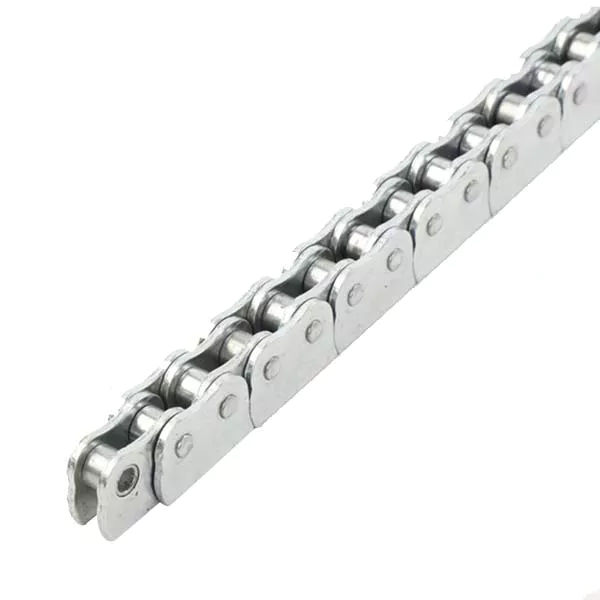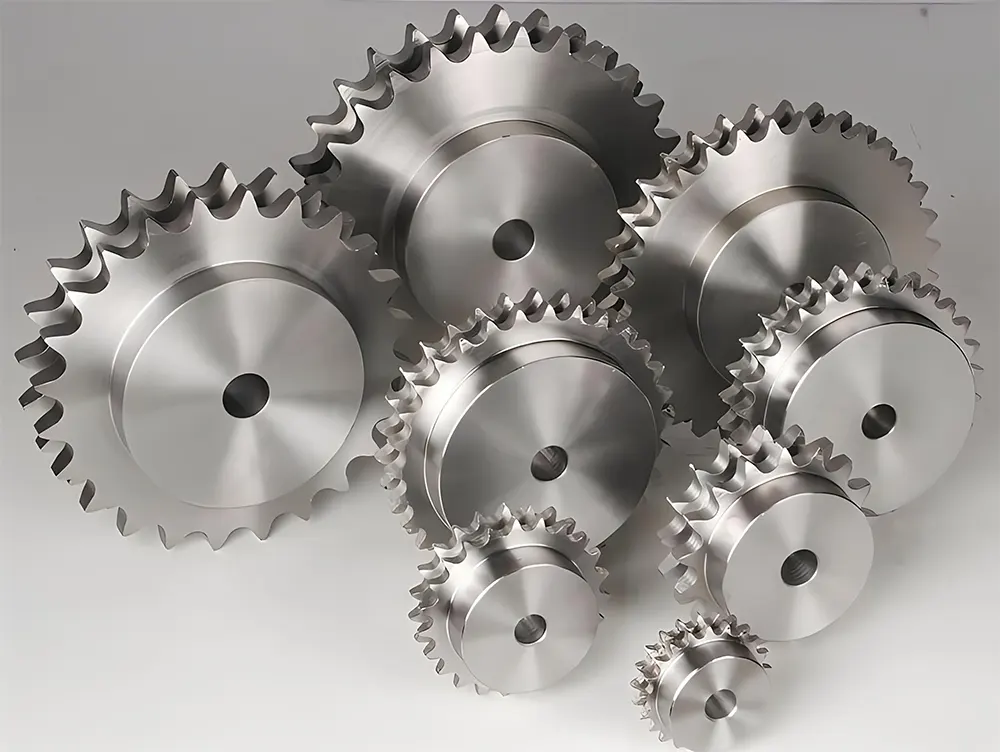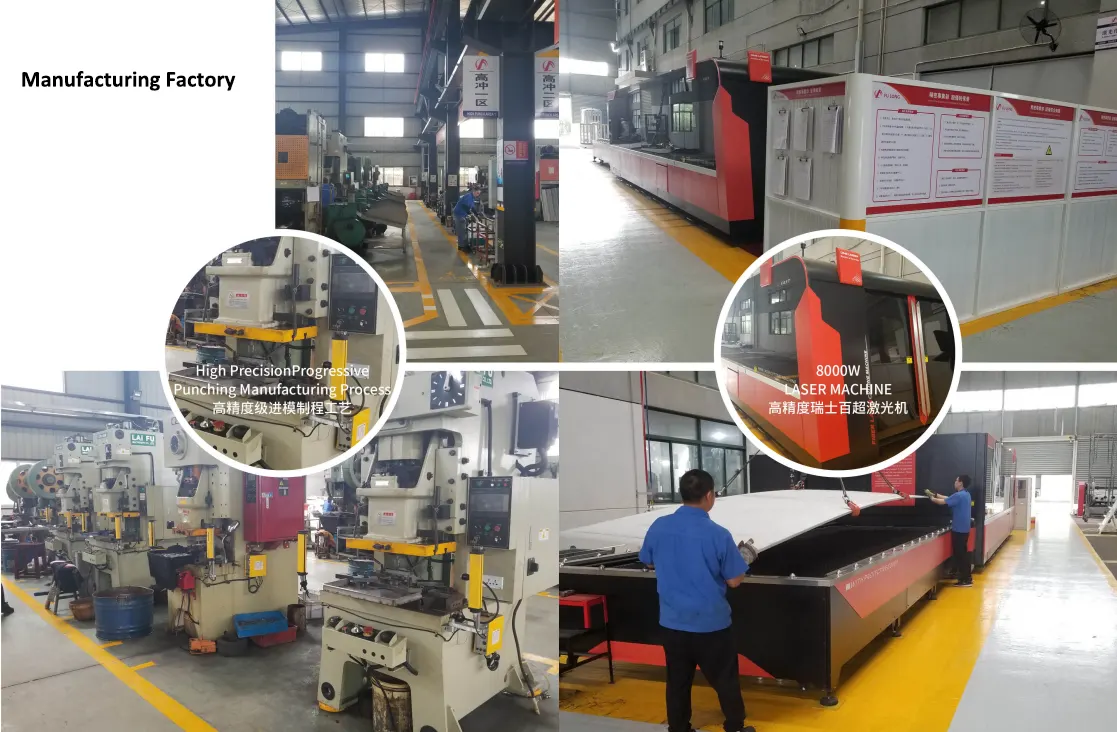Introduction
Stainless steel anti-bent chain is an essential component for the safe transport of nuclear waste. Its unique design and high-quality materials make it ideal for such critical applications. In this article, we will explore the various aspects of stainless steel anti-bent chains and their importance in nuclear waste transport.
1. The Composition and Structure of Stainless Steel Anti-Bent Chain
Stainless steel anti-bent chains are composed of a specialized alloy that provides exceptional strength and resistance to bending. The chain consists of interconnected links that form a robust and flexible structure. Each link is meticulously crafted to ensure maximum durability and reliability in extreme conditions.
2. The Role of Stainless Steel Anti-Bent Chain in Nuclear Waste Transport
2.1 Ensuring Secure Containment
Stainless steel anti-bent chains play a crucial role in maintaining the integrity of nuclear waste transport containers. The chain’s sturdy construction prevents any accidental release or leakage of hazardous materials, providing a reliable containment solution.
2.2 Withstanding Harsh Environments
Nuclear waste transport involves exposure to various harsh environments, such as extreme temperatures and corrosive substances. Stainless steel anti-bent chains are specifically designed to withstand these conditions, ensuring the safe transport of nuclear waste without compromising the chain’s structural integrity.
2.3 Minimizing Vibrations and Impacts
During transport, nuclear waste containers may experience vibrations and impacts that can potentially damage the cargo. Stainless steel anti-bent chains absorb and dissipate these forces, minimizing the risk of accidents and ensuring the safe arrival of nuclear waste at its destination.
3. Why Choose Stainless Steel Anti-Bent Chain for Nuclear Waste Transport
3.1 Superior Strength and Durability
Stainless steel anti-bent chains offer unparalleled strength and durability, ensuring long-term reliability in the demanding environment of nuclear waste transport. Their robust construction withstands extreme conditions and minimizes the risk of chain failure.
3.2 Corrosion Resistance
The specialized alloy used in stainless steel anti-bent chains provides exceptional resistance to corrosion, making them ideal for nuclear waste transport. This corrosion resistance ensures the longevity of the chains and maintains their performance even in corrosive environments.
3.3 Customization Options
Stainless steel anti-bent chains can be customized to meet specific requirements, including length, width, and load capacity. This level of customization allows for optimal performance and compatibility with different types of nuclear waste transport containers.
4. Common Fault Analysis and Solutions
4.1 Chain Wear and Fatigue
In high-intensity transport operations, stainless steel anti-bent chains may experience wear and fatigue over time. Regular inspection and maintenance can help identify early signs of wear and allow for timely replacement of worn-out chains, ensuring continued safe transport.
4.2 Improper Chain Lubrication
Insufficient or improper lubrication of stainless steel anti-bent chains can lead to increased friction, accelerated wear, and potential chain failure. It is crucial to follow the manufacturer’s guidelines for lubrication and ensure regular lubrication intervals to maintain optimal chain performance.
4.3 Environmental Contamination
Environmental contamination, such as the presence of corrosive substances or radioactive particles, can degrade the performance of stainless steel anti-bent chains. Regular cleaning and inspection are necessary to remove any contaminants and ensure the chain’s integrity and reliability.
5. Choosing and Customizing the Right Stainless Steel Anti-Bent Chain
5.1 Load Capacity and Breaking Strength
When selecting a stainless steel anti-bent chain, it is crucial to consider the load capacity and breaking strength. These parameters should align with the specific requirements of the nuclear waste transport operation to ensure safe and reliable performance.
5.2 Chain Dimensions and Design
The dimensions and design of the stainless steel anti-bent chain should match the container’s configuration and attachment points. Customization options allow for precise fitting and optimal compatibility, minimizing the risk of chain failure during transport.
5.3 Environmental Compatibility
Considering the environmental conditions in which the nuclear waste transport takes place is essential. Different alloys and surface treatments can enhance the chain’s resistance to specific environmental factors, such as extreme temperatures or corrosive substances.
Stainless Steel Sprockets for Anti-Bent Chains
Stainless steel sprockets and anti-bent chains complement each other in achieving optimal performance in nuclear waste transport. The sprockets provide smooth engagement with the chain, ensuring efficient power transmission and minimizing wear and tear on both components.
Our company offers a wide range of stainless steel sprockets designed specifically for anti-bent chains. These sprockets are manufactured with the same attention to detail and quality as our chains, guaranteeing a perfect fit and optimal performance.
About Our Company and Recommended Stainless Steel Anti-Bent Chains
Our company is a leading manufacturer of stainless steel chains, specializing in design, manufacturing, and sales. We provide a diverse range of products crafted from high-quality stainless steel alloys such as 304, 310, 321, 316, 410, 420, 431, 630, and 2205.
Our stainless steel anti-bent chains find extensive applications in industries like food processing, pharmaceuticals, electronics, appliances, automotive manufacturing, machinery, metallurgy, wastewater treatment, and more. We also offer professional customization services to meet specific customer requirements.
Our products are exported to Europe, America, Southeast Asia, and other regions, attesting to our commitment to quality and customer satisfaction. We encourage customers to explore our stainless steel anti-bent chains and contact us for purchasing inquiries.
Q&A
Q1: Can stainless steel anti-bent chains withstand extreme temperatures?
A1: Yes, stainless steel anti-bent chains are designed to withstand a wide range of temperatures, including extreme heat and cold. The specialized alloys used in their construction maintain their strength and integrity even in challenging environmental conditions.
Q2: Are stainless steel anti-bent chains resistant to radiation?
A2: Stainless steel anti-bent chains exhibit excellent resistance to radiation. The high-quality alloys used provide protection against the effects of radiation, making them suitable for nuclear waste transport and other radiation-sensitive applications.
Q3: How often should stainless steel anti-bent chains be inspected?
A3: Regular inspection is crucial to ensure the optimal performance and safety of stainless steel anti-bent chains. Depending on the intensity of use and environmental conditions, inspections should be conducted at regular intervals, typically monthly or quarterly.
Edited by Zqq





